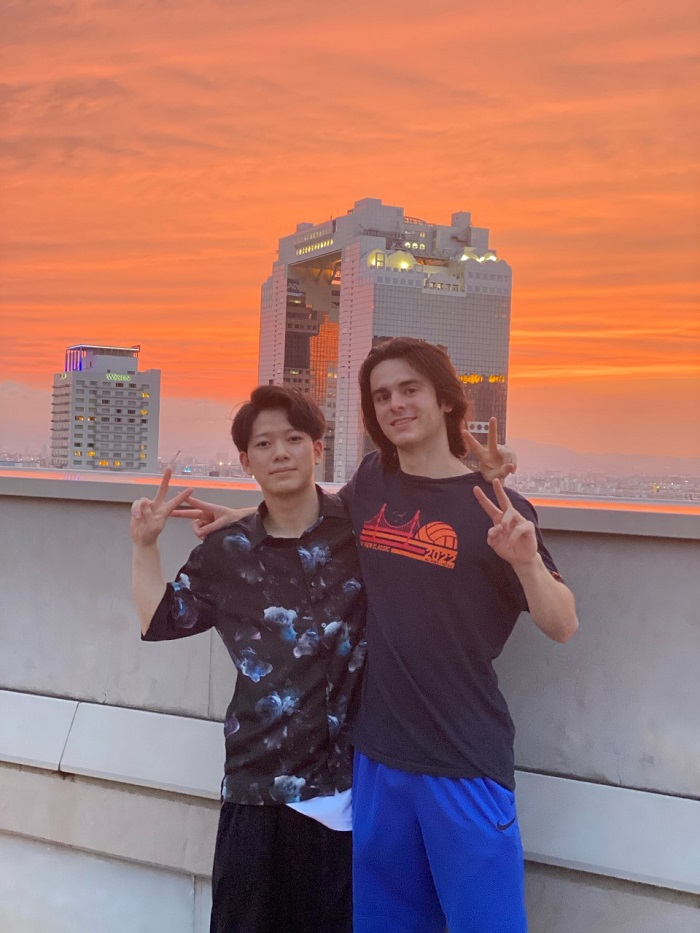Written by Josh Gill, (Rice University), Student Correspondent for CET Japan, Summer 2022
You never realize how easy it is to communicate with people in your native language until you can no longer use your native tongue. While it is a terrifying thing to be completely stripped of the possibility of communicating with other people in your native language, this sort of full-time language immersion heavily contributes to improvement in another language and is what makes the CET programs so unique. However, this philosophy requires complete dedication and its efficiency can only be maximized if you completely apply yourself to the situation.

Morning Sunshine in Aikawa.
After the CET Language Pledge Ceremony at the beginning of the semester, students must speak in only Japanese until the program ends. This includes when speaking with other students who share your same native language and even when no one is looking. Though this task likely appears impossible at face value, it is something that you will get used to easily as you notice your brain’s default language shifting, and you reach the point where you are longer merely translating, but rather in taking and outputting information all in your target language.

Posing with my local roommate.
With this, as the most important part of the language pledge is not the abstinence from using your native language, but rather the consistent usage of your target language, one of the best ways to complement your studies is talking with people as much as possible. While the program has only just started, I have been able to have many conversations in Japanese that have contributed to a deeper understanding of the language and better auditory comprehension and ability to express myself in Japanese. To say that I always understand everything the person with whom I am talking is saying, or to say that I can always completely and accurately express what I intend, would both be very inaccurate, as there are plenty of times when there is something I do not understand or when the words I am saying likely do not fully match up with my intended thoughts. While at times like these, it may seem easy to use Google Translate to save you, these are some of the most crucial moments, as they allow the opportunity to ask clarifying questions and get clarifying answers, all in your target language. This is so important because it is the difference between knowing what a word or phrase truly means, given the cultural context and background, and getting a mere translation, unsupported by any cultural context or background.

The sun setting in Umeda.
As having these conversations would not have been possible if I had not sought out the opportunities and tried to talk, the most important thing to do as you begin your journey in the program is to hit the ground running and seek out those conversations. It is definitely extremely intimidating at first as there is fear of being unable to understand the other person or fear of not being able to express yourself properly, but seeking conversations is the most essential step in helping to grow two of the most important skills in your language repertoire.